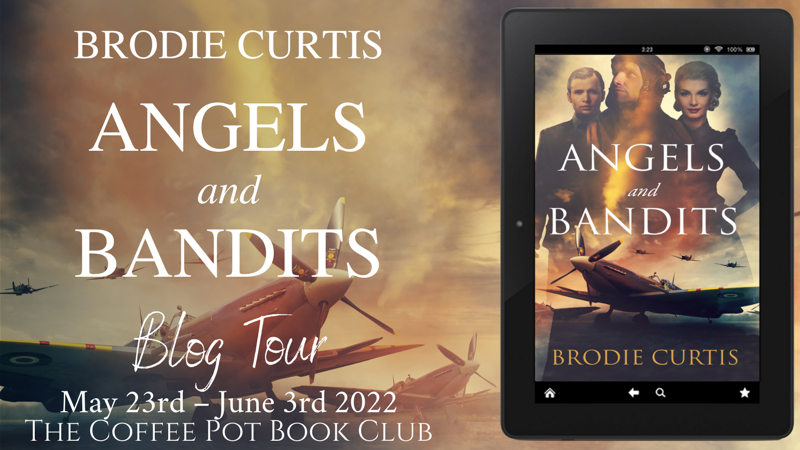
The Battle of Britain rages and two young RAF pilots from very different stations in life must somehow find common ground—and stay alive.
On the eve of World War II, working-class Eddy Beane is a flight instructor in London. He successfully completes dangerous espionage missions for Air Commodore Keith Park and takes on society-girl June Stephenson as a student. Her ex-fiancé, Dudley Thane, is also a flyer, but upper-class and Cambridge-educated. When the German Luftwaffe attacks England in 1940, Eddy and Dudley end up serving in the same Spitfire squadron. Aerial combat is intense, and both men show their skills and courage, but can they set aside jealousy and class differences to become fighting brothers for the defence of Britain?
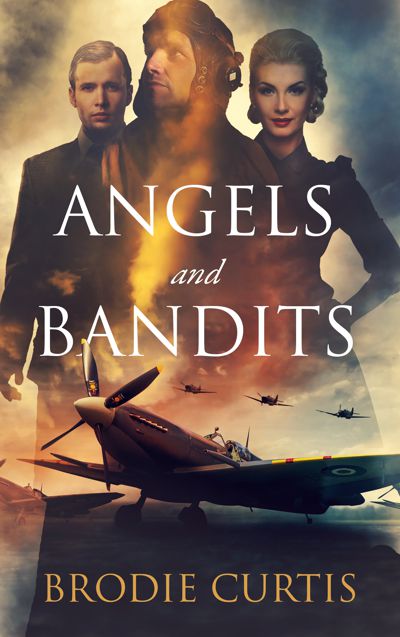
Challenges Faced by RAF Pilots During The Battle of Britain
RAF fighters pilots were young, often in their late teens or early twenties, and in contemporary photographs many were boyish in appearance. Traditionally, they had been educated and came from wealthy families, but the RAF had opened the doors to common young men who were not ‘gentlemen,’ so to speak, with the Volunteer Reserve Act of 1936.
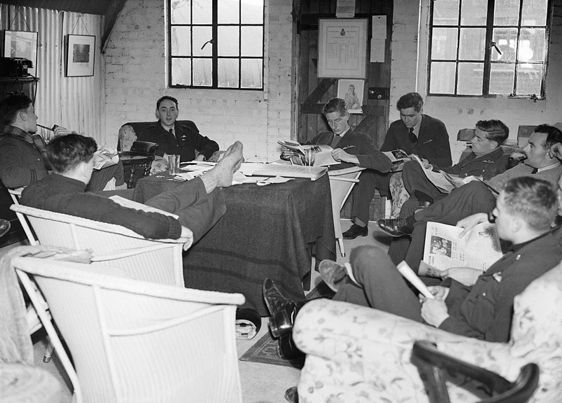
Young men like these had learned to fly on bi-planes or other trainers that would top out at around 100 miles per hour. During fighter training, often at bases in Scotland, their aircraft could dive at 450 miles per hour. Those who flew Spitfires faced a multitude of knobs, buttons and warning lights that required tending at a dizzying rate to ultimately reach synchronicity. Richard Hillary, in his autobiography The Last Enemy, described feeling “paralysed” and “complete claustrophobia” in his smallish cockpit, and wanted to get out of the plane immediately when his inexperience put him into an unintended dive and a harrowing miscue ensued during training in Scotland.
And training was deadly business, particularly for those pilots trained on fighter planes in 1940. Unsurprisingly, casualties had mounted in the early stages of The Battle of Britain when replacement pilots entered the fray without aerial actual combat experience. Only one of every two replacement pilots was said to survive his first sortie. But Air Chief Marshals Dowding and Park were forced to keep sending young, hastily-trained men up because civilian morale was kept up by seeing RAF fighter planes every time German bombers were in the sky. This meant training courses were condensed and intense, and dangerous. Roger Hall, in his autobiography Clouds of Fear, reports that seven pilots died during the first week of his single-seat fighter training course in the summer of 1940. Hall also reports that the pressures of fighter training changed the nature of the young pilots and spawned eccentric behaviors, be they arrogant or insular, and reliance on heavy drinking.
But those who completed training and were assigned a Spitfire dearly loved their airplane. Most referred to a Spit as “her” as its grace and beauty in their eyes made it comparable only to an attractive lady.
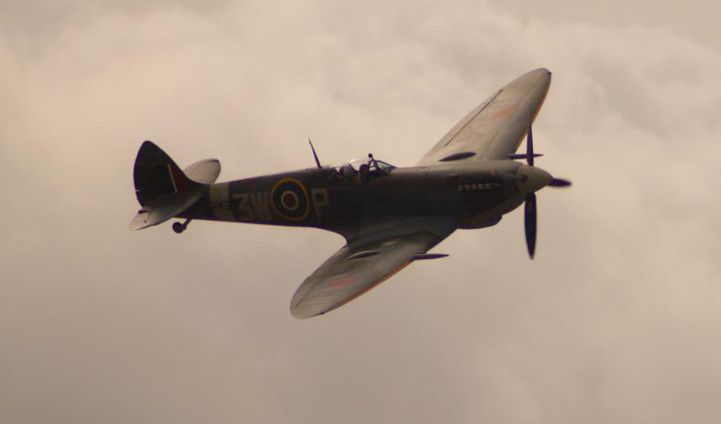
From training, RAF pilots were sent to an operational airbase and for Hillary, it was Hornchurch. He found that it wasn’t was just the dogfighting that put his life at risk. He had only a few sorties under his belt, and had already made his first kill, when he had to take cover from one of the frequent German bombing runs on his airfield as described in Chapter 5 of The Last Enemy: “…I looked up again, and this time I saw them—about a dozen slugs, shining in the bright sun and coming straight on. At the rising scream of the first bomb I instinctively shrugged my shoulders and ducked my head…we scrambled out of the entrance. The runways were certainly in something of a mess. Gaping holes and great gobbets of earth were everywhere…”
The frequent bombings, and the prospect of being sent on life or death missions to intercept the German Luftwaffe, put the young RAF pilots under unimaginable pressure. Hall admitted in Clouds of Fear that he prayed intensely before he went to sleep. In fact, after an extensive tour of aerial combat during The Battle of Britain, Hall suffered a breakdown that required hospitalization.
When an RAF pilot “scrambled” with his Squadron of twelve, his focus was on the orders coming through his headset and maintaining his place in strict formation until combat began and the formation broke apart. Teamwork was critical. A common man Sergeant Pilot might be on the wing of a Flight Lieutenant Oxbridge man or Etonian and relied on for cover. Or vice versa. Class differences were irrelevant at twenty thousand feet, only flying skills and verve were of consequence. Whatever their backgrounds, the RAF pilots had to fly as efficient, cohesive teams. As Richard Hillary mused in The Last Enemy: “Was there perhaps a new race of Englishmen arising out of this war, a race of men bred by the war, a harmonious synthesis of the governing class and the great rest of England; that synthesis of disparate backgrounds and upbringings to be seen at its most obvious best in R.A.F. Squadrons?” My characters in ANGELS and BANDITS are forced to achieve the harmonious synthesis that Hillary speaks of.
While the Spitfire has a sterling legacy as a fighting machine, during the height of The Battle of Britain as many as six sorties were flown in a day, sometimes over-taxing the mechanical operations of the plane. And during these sorties, Pilots engaged in aerobatic maneuvers to the limit of a Spit’s capabilities. Planes were frequently damaged by gunfire and/or developed engine problems. A literal army of groundmen kept them repaired and operational, often working straight through the night. So a pilot might have found his machine wasn’t exactly purring like a kitten. His wireless headset might have been experiencing poor reception, his oxygen could have failed, or he could have had engine trouble. Any of these troubles might leave a pilot a sitting duck, so he had to assess the effectiveness of his airplane constantly and decide whether to stay in formation or return to base, making the guilt-inducing decision to leave his Squadron one Spit short.
Upon engaging the enemy, a Pilot had to close on a German plane to get a shot, and that was nervy business. A Spit’s guns were considered ineffective beyond 200 yards and some pilots spoke of habitually closing within 50 yards before firing. The trick was to avoid the target plane’s “slipstream” or be thrown into a potentially deadly cork-screw spinning dive.
Flying in aerial combat with one’s emotions in check was essential. Roger Hall spoke of the rage of “Nemesis” when seeing a Squadron mate shot down, or worse when he witnessed a German fighter plane shoot an RAF pilot floating to earth under a parachute. Losing one’s cool in the midst of aerial combat risked making a reckless maneuver that would result in being shot down. My protagonist in ANGELS and BANDITS, Eddy Beane, faces this very challenge when a Messerschmitt 109 shoots down his Squadron mate.
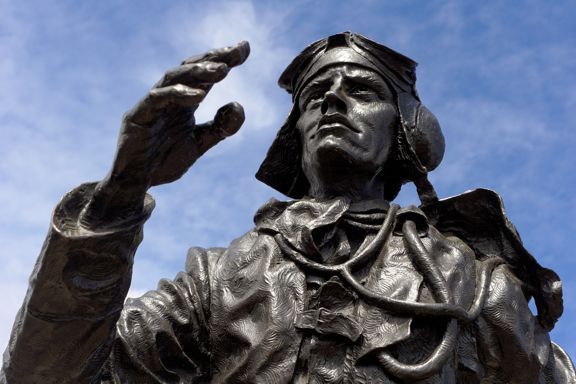
In addition to the emotional toll, fighting in The Battle of Britain was a Herculean physical effort. In August and September of 1940, Pilots were scrambled on patrols or to intercept German raids multiple times a day. The cockpit was cramped and uncomfortable and aerobatics and negative G forces whipped their bodies within the cockpit, even while heavily strapped in. Exhausted young men returned to base on their last flight of the day. But emotionally, they needed to unwind with their Squadron mates from the taut mental strain of aerial combat. Hall spoke of frequent nights at pubs like the Sunray or the Crown, followed after closing time by bacon and eggs and chat until the middle of the night, and being woken at 5:30 am for a 6:00 am patrol.
Enduring the pressures of defending southern England during those heady months of August and September when Britain stood alone, and overcoming the many challenges they faced, has made the RAF pilots from The Battle of Britain legends in the eyes of history. As Winston Churchill famously said: “Never in the field of human conflict was so much owed by so many to so few.”
Universal Link: https://brodiecurtis.com/buy/
Amazon UK: https://www.amazon.co.uk/gp/product/B09WYNMK6T
Amazon US: https://www.amazon.com/gp/product/B09WYNMK6T
Amazon CA: https://www.amazon.ca/gp/product/B09WYNMK6T
Amazon AU: https://www.amazon.com.au/gp/product/B09WYNMK6T
Barnes and Noble: https://www.barnesandnoble.com/w/angels-and-bandits-brodie-curtis/1141303805
Kobo: https://www.kobo.com/ww/en/ebook/angels-and-bandits
Apple Books: https://books.apple.com/us/book/angels-and-bandits/id1617078119
Meet Brodie Curtis

Raised in the Midwest, Brodie Curtis was educated as a lawyer and left the corporate world to embrace life in Colorado with his wife and two sons.
Curtis is the author of THE FOUR BELLS, a novel of The Great War, which is the product of extensive historical research, including long walks through the fields of Flanders, where much of the book’s action is set. His second novel, ANGELS AND BANDITS, takes his protagonists into The Battle of Britain. Curtis is currently working on a novel set on a Mississippi Riverboat prior to the Civil War.
A lover of history, particularly American history and the World Wars, Curtis reviews historical fiction for the Historical Novels Review and more than 100 of his published reviews and short takes on historical novels can be found on his website.
Connect with Brodie
Website: brodiecurtis.com
Twitter: https://twitter.com/BrodieCurtis4
Facebook: https://www.facebook.com/brodiecurtisauthor/
Instagram: https://www.instagram.com/curtisauthor/
BookBub: https://www.bookbub.com/authors/brodie-curtis
Amazon Author Page: https://www.amazon.com/Brodie-Curtis/e/B07QSCF8Z1
Goodreads: https://www.goodreads.com/author/show/19061267.Brodie_Curtis
Thank you so much Mercedes for sharing my post! It looks great and I think it conveys the passion I had for my ANGELS and BANDITS project as I dug into my research of The Battle of Britain events and period. Thanks again! Brodie Curtis
Thank you so much for hosting today’s tour stop for Angels and Bandits.
All the best,
Mary Anne
The Coffee Pot Book Club